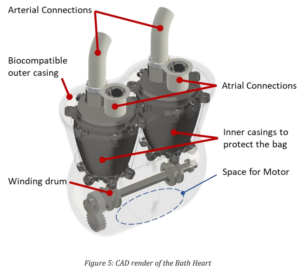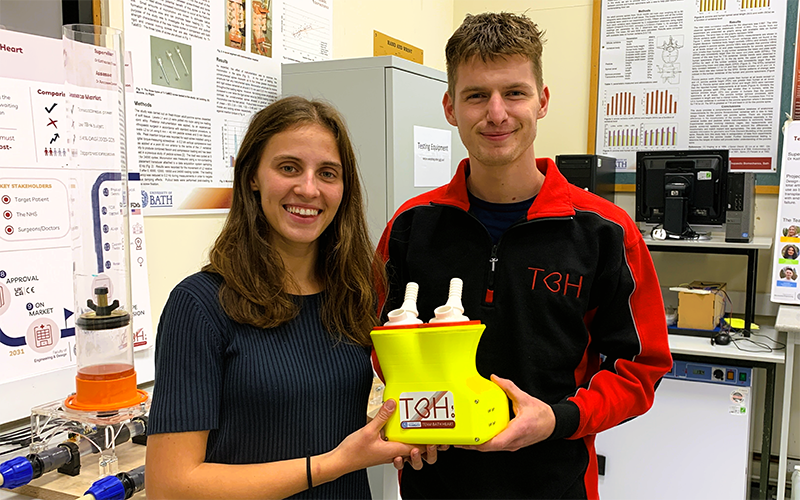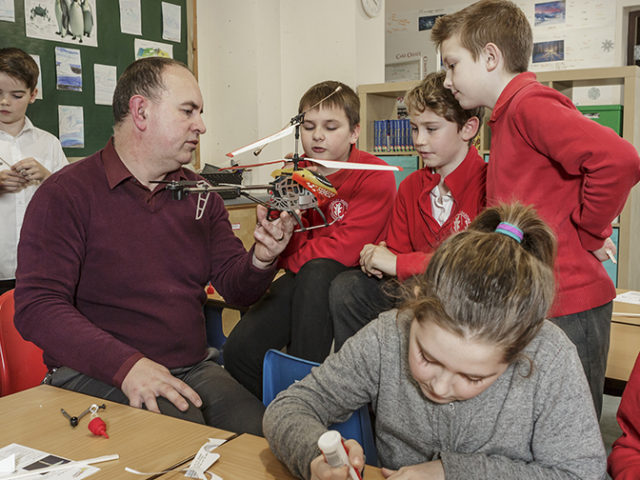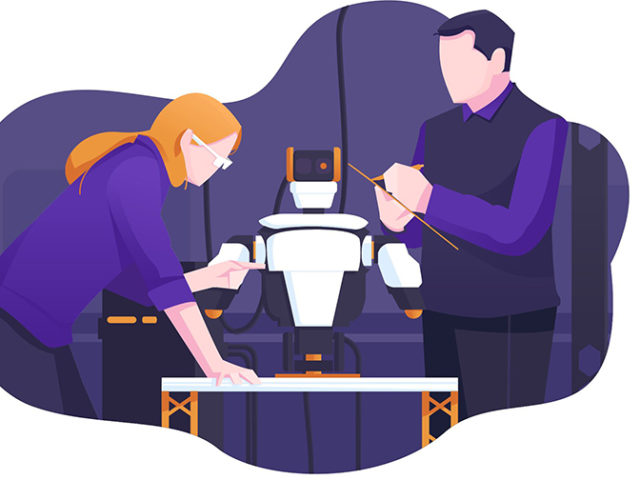Student engineers from the University of Bath emerged victorious in an international contest to create a synthetic heart.
Team Bath Heart secured the leading position at the inaugural Heart Hackathon grand finale, hosted in Texas as October drew to a close.
The six-person group showcased their invention to a panel of specialists in artificial heart technology, vying with teams from nations including Australia, the United States, Sweden, New Zealand, Romania, and Egypt.
The ‘total artificial heart’ devised by the students could potentially serve as a substitute for a cardiac patient’s organ. Artificial hearts hold a significant place in medical practice, offering a bridge for patients awaiting heart transplants or aiding in the recovery of their natural hearts.
The prototype, an enlarged version of their original design, utilises advanced materials and employs a bag pumping system to emulate sophisticated blood flow and automatic flow rate adjustments, similar to the function of a natural heart.
The event, aimed at fostering innovation among future medical and cardiovascular specialists, saw Team Bath Heart’s lead, Fleur Upton, and technical manager, Alex Myers, present their work for 15 minutes. Following this, the entire team engaged with a panel of experts, discussing their design decisions.
Teams were evaluated based on their research quality, technical innovation, and efforts towards commercialisation. Team Bath Heart’s patient-centred approach significantly contributed to their distinction from other participants.
Now expanded to 45 students from varied disciplines including engineering, computer science, biology, and management, Team Bath Heart originated early in 2022 with a six-member challenge to construct an artificial heart.
Team leader Fleur Upton expressed immense pride in the victory, highlighting the educational aspect of interacting with other teams and the gratification derived from the project’s success.
The team appreciates the backing from the University and the guidance from their academic advisors, Katharine Fraser, and Mélusine Pigeon, as well as the specialist counsel from Chris Bowles of Harefield Hospital and the insights from the judging panel.
Dr Katharine Fraser commended the team’s approach of integrating patient and clinician needs with their academic learnings, praising their dedication to crafting the innovative heart model. She underscored the significance of such medical engineering advancements and their industrial potential, emphasising the hands-on problem-solving and management skills the team members were acquiring for their future professional endeavours.

Post-competition, the team participated in the ISMCS conference to further their knowledge and engage with industry leaders.
With sights set on the 2024 Heart Hackathon final, Team Bath Heart is proceeding with the next design phase and welcomes contact from potential sponsors at TeamBathHeart@bath.ac.uk.




